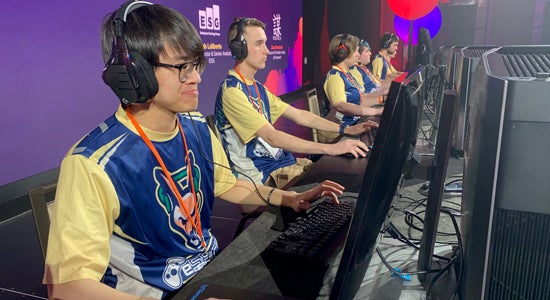
Esports – organized multiplayer video game competitions – is estimated to become a $1bn industry in 2020. Nearly 60% of that revenue will come from sponsorship, as brands from a wide range of sectors target the esports audience. This is predominantly made up of young men, a group that is generally tough for advertisers to reach. This demographic is typically resistant to traditional advertising channels, like print and TV, so many brands see esports as key to engaging with them.
Technology and gaming companies are the primary sponsors of the sector. However, the increasing involvement of brands from non-endemic sectors, such as beverages, retail, and consumer goods, is helping to legitimize the sport in the eyes of the wider world, as well as bringing in significant revenue. Industries such as automotive, banking, hotels, and utilities are investing in esports to reach a fresh audience.
Personalized offerings are key for brands
The prime attraction for brands in esports are the Generation Hashtag (anyone born between 1991 and 2005). This tech-savvy cohort demands a personalized approach. It has been instrumental in the growth of themes like ecommerce and the sharing economy. The success of Amazon’s Twitch, the largest esports livestreaming platform, is due in part to its microtransactions-based revenue channel. This is particularly popular with Generation Hashtag consumers.
Non-endemic brands are also starting to experiment with interactive solutions in esports, to build engagement with Generation Hashtag. KFC, for example, offered live game predictions to League of Legends to fans in China. This garnered over an hour of brand exposure per day, translating into more than 200 million peak viewers in livestreams.
What do brands bring to esports?
Endemic brands provide technical support to the industry. Alienware and Asus are supporting teams with devices on which players can train. Others, like Intel, are aiding organizers with event infrastructure. Telcos, too, are banking on the sector to promote their early 5G offerings. Vodafone is providing 5G for tournaments and NTT DOCOMO is working on faster, lag-free streaming services.
Sponsorship from non-endemic brands help esports teams open up new revenue channels. For example, Cloud9 offers team-branded apparel in partnership with Puma. The involvement of globally recognized brands like Coca-Cola (the official non-alcoholic beverage of Overwatch League) has brought the sector closer to the mainstream and helped to attract more brands.
How well do you really know your competitors?
Access the most comprehensive Company Profiles on the market, powered by GlobalData. Save hours of research. Gain competitive edge.

Thank you!
Your download email will arrive shortly
Not ready to buy yet? Download a free sample
We are confident about the unique quality of our Company Profiles. However, we want you to make the most beneficial decision for your business, so we offer a free sample that you can download by submitting the below form
By GlobalDataHow are brands benefiting?
Most brands do not disclose the number or size of their investments in esports. Hence, assessment of brand impact and return on investment remains a challenge. A Nielsen initiative, in association with ESL and DreamHack, to introduce a standardized measurement of brand impact in esports could bring clarity.
For now, it is clear that the increasing involvement of non-endemic brands is indicative of the industry’s growing maturity. With the esports audience predicted to grow to 646 million people by 2023, the industry will offer brands the opportunities to reach new markets and demographics that might otherwise not be available to them.





Related Company Profiles
Puma SE
Nielsen Holdings plc
NTT DOCOMO Inc
Intel Corp
Amazon.com Inc